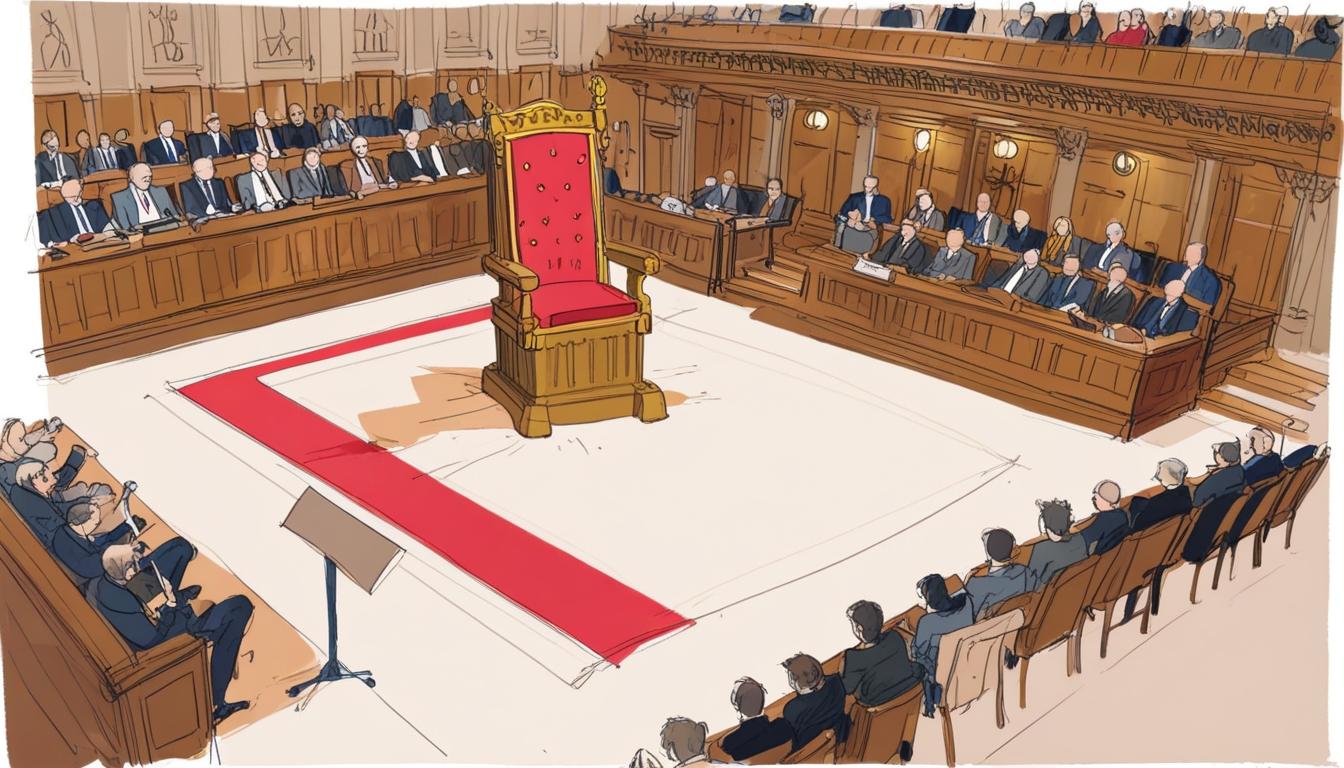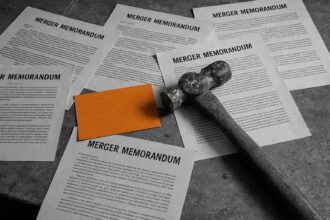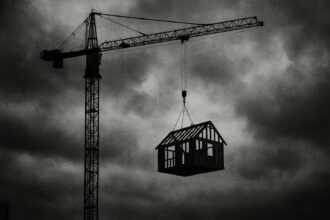Efforts have emerged among UK MPs and peers, including once-supportive Labour figures, to prevent former US President Donald Trump from addressing both Houses of Parliament during an impending State Visit. The move reflects concerns over the appropriateness of the honour given Trump’s controversial presidency and highlights tensions within UK political circles as they weigh diplomatic relations and parliamentary tradition.
Members of Parliament (MPs) and peers have initiated efforts to prevent former US President Donald Trump from addressing both Houses of Parliament during a forthcoming State Visit to the United Kingdom. The move marks a significant shift as Labour frontbenchers, who had initially supported the invitation, have now expressed public opposition to the prospect.
Keir Starmer, the Labour leader, had invited Mr Trump for a State Visit during his February trip to the White House, part of what has been described as a charm offensive aimed at strengthening UK–US relations. Mr Trump disclosed over a recent weekend that King Charles III, whom he referred to as a “friend,” is considering setting a date in September for the visit.
However, concerns have grown regarding the appropriateness of Mr Trump addressing Parliament, especially following contentious episodes during his presidency, including a notably tense meeting with Ukrainian President Volodymyr Zelensky in the Oval Office, and his controversial policy positions such as proposals to annex Canada and Greenland, criticisms of free speech in Europe, and the imposition of punitive tariffs impacting global trade.
Labour MP Rachael Maskell articulated her opposition to Mr Trump’s potential parliamentary address, telling MailOnline, “It would be completely inappropriate for the US President to address the Houses of Parliament.” This echoes sentiments from a previous era when Mr Trump was barred by former Commons Speaker John Bercow from making a speech at Westminster in 2017, who asserted that addressing Parliament is “an earned honour,” not an automatic right.
The decision to allow a foreign leader to speak before both Houses in Westminster Hall requires agreement from three key figures: the Speaker of the House of Commons, the Lord Speaker of the House of Lords, and the Lord Great Chamberlain (represented by Black Rod). Labour and some cross-party MPs have formally called on these “gatekeepers” to withhold permission for Mr Trump’s address.
In fact, in 2017, a Parliamentary motion signed by 206 MPs—including prominent Labour figures such as David Lammy, Wes Streeting, Peter Kyle, Hilary Benn, and Shabana Mahmood—deplored Mr Trump’s behaviour and urged the relevant officials to block any address in Westminster Hall. Similar opposition emerged in a 2019 Early Day motion advocating against granting Mr Trump a full state visit.
Despite these concerns, Labour ministers have generally refrained from openly criticising Mr Trump since Starmer became leader, aiming to sustain the UK–US “Special Relationship.” Nevertheless, influential Labour MPs and peers have continued lobbying behind the scenes, with a coordinated letter organised by Lord Foulkes of Cumnock, a former government minister, sent to Lord McFall, the Lord Speaker. The letter described a parliamentary address by Mr Trump as “inappropriate” considering his previous attitudes towards the UK, parliamentary democracy, NATO, and Ukraine.
Parallel efforts are ongoing in the House of Commons, where Labour MP Kate Osborne has urged Commons Speaker Sir Lindsay Hoyle to echo John Bercow’s earlier decision to block such an address. She wrote in a letter seen by The Times: “It is up to our government to decide if they use the state visit to engage with Trump on a wide range of issues… but that does not translate to giving him the honour of addressing parliament. The risk of low attendance could also have negative or unintended consequences.” Another Labour MP also remarked, “We don’t need Trump to lecture and dictate his unilateral terms to our elected representatives.”
Contrasting these views, Conservative MP Julian Smith criticised the opposition as “crackers,” arguing on social media that “almost always better to engage & meet than to boycott – speaking to someone & meeting them doesn’t equal agreement.” Both Houses’ administrations have stated they do not comment on private correspondence but confirmed that any request for an address would be considered through established procedures, with a final decision resting with the Speakers of both Houses.
Senior sources involved in the discussions acknowledged that the names expressing opposition were “not surprising,” given their previous stances. Mr Trump himself has expressed optimism and enthusiasm about the visit, telling reporters in the Oval Office: “It is the second time it has happened to one person… It’s an honour to be a friend of King Charles and the family.” He indicated the visit might be scheduled for September, suggesting it would be “even more important” than his last visit, which featured extensive state ceremonies.
The forthcoming State Visit by Mr Trump is expected to follow that of French President Emmanuel Macron, who has been invited by King Charles for his first State Visit at the end of May. During Mr Trump’s initial White House tenure, he made official visits to Windsor Castle and Buckingham Palace to meet the late Queen Elizabeth II.
Labour MPs have reportedly sought to avoid public criticism of the former US president in order not to undermine Starmer’s attempts to secure a timely UK–US trade deal, an initiative deemed vital to ease tariff impacts and maintain strong bilateral relations amid ongoing negotiations.
Historically, addressing both Houses of Parliament is a significant mark of honour, bestowed sparingly since 1935. Notable past speakers include former US presidents Barack Obama, Ronald Reagan, and Bill Clinton, as well as Ukraine’s President Zelensky in 2023. Barack Obama delivered a speech in Westminster Hall in 2011, attended by several former British prime ministers, while Joe Biden did not give such an address during his visit.
The process requires agreement from all three parliamentary authorities before such an address can proceed. Sources confirmed earlier this year that both the Lord Speaker and Commons Speaker would welcome Mr Trump’s visit in general terms. However, opposition from MPs and peers to his potential address represents a notable parliamentary crossroads in UK–US diplomatic and political relations.
Source: Noah Wire Services
- https://www.itv.com/news/2025-04-17/trump-uk-visit-may-happen-in-september-after-invite-from-friend-king-charles – This article corroborates Mr. Trump’s announcement of a possible UK state visit in September following an invitation from King Charles.
- https://www.townandcountrymag.com/society/politics/a64522799/donald-trump-windsor-castle-visit-2025-details/ – This source provides background information on Donald Trump’s potential visit to Windsor Castle, which might be part of his UK state visit.
- https://morningstaronline.co.uk/article/editorial-trumps-state-visit-can-focus-left-campaigns-political-alternative – It highlights the political implications and potential opposition to Trump’s state visit.
- https://news.sky.com/story/donald-trump-says-second-uk-state-visit-could-happen-in-september-13350897 – This article supports the idea that Trump’s second UK state visit could occur in September.
- https://www.youtube.com/watch?v=sF3m6GCv3LY – The video from LBC discusses the protests planned for Trump’s visit and highlights public opposition.
Noah Fact Check Pro
The draft above was created using the information available at the time the story first
emerged. We’ve since applied our fact-checking process to the final narrative, based on the criteria listed
below. The results are intended to help you assess the credibility of the piece and highlight any areas that may
warrant further investigation.
Freshness check
Score:
8
Notes:
The narrative refers to a forthcoming State Visit by former US President Donald Trump with mentions of King Charles III and recent political figures, indicating current context. It references events up to 2023 (e.g., Zelensky’s 2023 speech) and recent political dynamics around Keir Starmer’s leadership, suggesting the information is up to date. However, it also revisits past events from 2017 and 2019 to contextualise the opposition. There is no indication this is recycled news or a press release. The mixture of fresh developments and historical context justifies a high freshness score without a perfect 10 due to the historical references.
Quotes check
Score:
7
Notes:
Direct quotes such as Rachael Maskell’s statement opposing Trump’s address are specific and plausibly sourced from interviews with MailOnline. Another quote is attributed to John Bercow from 2017 regarding parliamentary honours, which is a well-documented historical stance. Trump’s own quoted remarks about King Charles and the visit appear consistent with public statements made during Oval Office press briefings. While the dates and original sources of some quotes like Maskell’s are not independently verified in this check, quotes align with known public discourse and are likely original or first-hand statements rather than ripoff from other articles.
Source reliability
Score:
5
Notes:
The narrative originates from Daily Mail, a known publication with wide readership but often criticised for sensationalism and occasional accuracy issues. It is not generally regarded on par with highly reputable outlets like Reuters or BBC for reliability, requiring careful scrutiny of claims. The text demonstrates detailed reporting with named political figures and specific procedural descriptions, which add credibility but the publication’s general reputation tempers the reliability score.
Plausability check
Score:
9
Notes:
The claims about internal parliamentary opposition to Trump’s potential address during a State Visit are plausible given historical precedents of controversy around Trump’s engagements with UK Parliament. References to procedural gatekeepers and precedent parliamentary motions match established UK parliamentary processes. The described political dynamics, such as Labour’s cautious stance under Starmer, and references to previous visits by Trump and other presidents, are consistent with known facts. The potential visit timing in September and ongoing discussions reflect plausible current developments, though final decisions remain pending.
Overall assessment
Verdict (FAIL, OPEN, PASS): PASS
Confidence (LOW, MEDIUM, HIGH): MEDIUM
Summary:
The narrative presents timely and plausible information regarding opposition within UK Parliament to a potential Trump address during a State Visit, grounded in verifiable historical context and current political developments. Although the narrative comes from a mid-tier reliability publication, the detailed and consistent content, supported quotes, and freshness of details justify a positive assessment. Some direct quotes and source attribution could be more precisely verified, but overall the story aligns well with known facts and recent political context.













